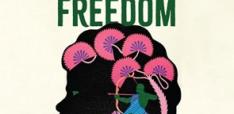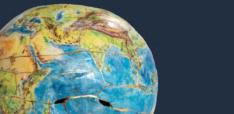In Defining Weeks for its Relations with the Global South, Europe is Struggling to Find its Footing

Amidst geopolitical rifts, a string of high-level meetings over the next weeks provides Europe an opportunity to resolve its struggle to find footing on the global stage. While American retrenchment carves out room for Europe to assume a progressive role with its partners in the Global South, Brussel’s body language leaves much to be desired.
European leaders and heads of state were expected to travel to Santa Marta, Colombia, for the EU’s summit with Latin American and Caribbean states, on November 9 and 10, before heading to COP30 in Belém, Brazil, and further down to Johannesburg for the G20 Summit on November 22. What appears to be the most defining weeks for European global relations in a long time, would then close off with the Africa-Europe High Level Summit hosted in Luanda, Angola, this year’s African Union chair, directly after G20.
While Belém, Johannesburg and Luanda are still on the table, fear of upsetting US President Donald Trump, who has recently sanctioned Colombian President Petro, calling him a ‘hostile foreign leader’, changed the travel plans of European Commission President Ursula von der Leyen, German Chancellor Merz, and French President Macron. As northern transatlantic relations gain priority, Europe increasingly slips any geostrategic footing in the rest of the world.
The thin commitment to a South America – where China has overtaken the US as preferred partner for many countries and where Europe seems all but irrelevant – frames Von der Leyen’s long-toured message that Europe is a partner you can trust as deeply unconvincing. A mistrust reinforced in the EU’s relations to Africa, with European donors slashing their aid budgets at a historical pace while the Union’s external actions increasingly seem to serve its own short-term political, economic, and security interests.
Trust was already in short supply. Last time African and European leaders got together in 2022 in Brussels, civil society from both continents was left out, and investment packages presented by the EU brushed off as already-pledged or unfitting capital. The summit headline was meant to inspire a ‘partnership of equals’, but legitimacy was thin on the part of an EU massively hoarding Covid-19 vaccines and opposing the TRIPS Waiver that could enable manufacturing in the Global South.
Short-sightedness putting into doubt Europe’s strategic acumen on medium- and long-term political plays may not be a good sign at a time when Europe's long stretch in the sun appears to be waning. EU's percentage of global GDP is expected to fall to less than 10 percent by 2050, while the continent’s demographic development will see it only be home for 5 percent of the world's population living in Europe by the end of the century. Africa alone will be home to almost 40 percent by then, and more than eight out of every ten people in the world will live in Asia or Africa by century's end.
The economic power shift is, if anything, even more dramatic and already underway. Developing and emerging economies now account for 45 percent of global GDP, nearly double their 25 percent at the turn of the millennium. Projections show that emerging markets will dominate the global economy with 60 percent of GDP by 2050, including hosting six of the seven largest economies, led by China, India, and Indonesia.
Some talk of an upheaval so deep it reflects a civilisational crisis for Western modernity, spurred on by the collapse of neoliberalism, beginning with the 2008 financial crisis and intensified during the Covid-19 pandemic that exposed glaring weaknesses in the global market-driven system, and the end of post-war American hegemony, unfolding in spectacular fashion before our eyes.
While some have celebrated the consensus in Seville, Spain, on the new UN agreement on Financing for Development as a ‘victory for multilateralism’ – after US diplomats had withdrawn from the process – other organizations argued that the EU had played a role every bit as regressive as the US. And as African leaders convened in Addis Ababa for the Second African Climate Summit too, the EU was a recurrent target of criticism for its external actions and inactions.
The EU's belated climate action plan or so-called NDC for COP30 has frustrated Brazil and disappointed African nations still reeling from broken promises at the Paris COP. America's withdrawal from the Paris Agreement creates a clear opening for Brussels to step up and yet Europe seems unable – or unwilling – to truly grasp it.
'We believe that Africa is the continent where our future is most at stake', Italian Prime Minister Meloni stated together with Von der Leyen at the presentation of a new investment plan aimed at Africa, in Rome this June. The 'Mattei Plan for Africa', however, turned out to be not so much about a common future for the two continents as an explicit prioritisation of European interests in stopping migration and securing EU access to natural resources on the African continent, deemed ‘neocolonial’ by its critics.
Reality is probably somewhat more nuanced than an ever feet-dragging EU, but the mere fact that narratives from a whole host of recent important political high-level events can be one of a Global South left frustrated suggests an imbalance in the EU's approach to its global diplomacy. And herein lies one of Europe's core problems: Brussels has long struggled to truly understand the political game out there and mostly spent its energy on frustration that others couldn't see things from our perspective and appreciate all the good things we have done and have to offer.
From Santa Marta to Luanda, over the coming weeks, ‘our future’ cannot refer to Europe alone, if European leaders hope to recapture some of the love lost. What will it take then, for the EU to reinvent itself as an attractive partner with a strong offer that serves partner countries' interests too?
It all starts with body language. It’s no coincidence the EU-AU Summit is grouped alongside G20, with Brussels hoping this might convince more European leaders to make the trip and be present – and the EU-CELAC Summit conveniently before COP30. This is the first hint at a problem expected to showcase itself in full-blown form in Santa Marta with empty chairs of European high level representatives. European heads of state need – including at the highest EU levels of Kaja Kallas and Von der Leyen – to show their commitment through presence and accessibility. Making time to meet shows respect and political parity, and the EU ‘competitors’ from China, Russia, or India know this well.
Optics are key, but so is the need to overcome tendencies from Brussels to overpromise and underdeliver.
Even as the Union is trying to push for new geostrategic long-term plays around the world – including through a large increase in funds spend on international partnerships in the newly proposed multiannual EU budget – member states find it difficult to lift their gaze from otherwise justifiable pressing short-term interests. The sensation from Copenhagen, where Denmark hosts the Presidency of the European Council and thus maintains a defining hand in EU positions, is a difficulty, if not an impossibility, of Europe to maintain political focus on multiple fronts that can ensure not just the immediate but long-term prosperity and security of Europe.
Global Gateway – the massive infrastructure investment scheme that has evolved from development-centred to delivering on EU self-interest – is based on sound analysis but it is both late and far from enough to repair political relations on the African continent or renew European partnerships with Latin America and the Caribbean. Europe will certainly not outsmart China by being transactional. A Chinese approach that is both seeing increasing scrutiny from African leaders, and adjustments from China itself with Xi calling for a move towards ’small and beautiful’ projects.
Multipolarity is about embracing not just new alliances, but a new alliance-game altogether. European leaders usually twitch at the mention of the m-word, seeing in front of them disorder, chaos, and declining influence. They have to understand that to others, it holds a potential for political agency and perhaps even emancipation. The EU cannot see cooperation with the Global South as a geopolitical zero-sum game or think they can force heads of state across Africa, Latin America, or the Caribbean to make ultimate political choices between Europe, China, and other potential partners. The new context fosters multi-alignment, requiring the necessary flexibility to engage both partners and competitors on an issue-base without being too ultimate. That includes working with China in contexts or situations where it has the leverage to enable impact on European priorities. Neither Europe, Africa, nor Latin America has great powers, and that needs to steer their realism of alliance-making.
At the same, we must be careful to state in simplifying terms that US global disengagement – which is not so much a withdrawal as a resort to self-interested disruption – has opened up a vacuum easily filled by other major competing powers. Such narratives risk an arrogance, demoting local and national political agency, ill-equipped for effective European engagement. Even if material asymmetries persist, the current reconfigurations of power means African states continue to leverage their says internationally.
The real road to winning any allies (if we can at all talk about competition) runs through a robust European value proposition and partnerships based on the ability to listen and respond to the other side’s needs and interests. As such, Europe’s future prosperity and security hinges on its international partnerships. And yet, cultivating these requires both political foresight and political courage, commanding Brussels to lift its gaze above the prism of immediacy to not widen the current continental gaps.
Adam Moe Fejerskov & Marie Kolling, The Danish Institute for International Studies in Copenhagen.
Photo by Stefan Stefancik


